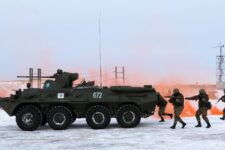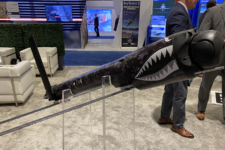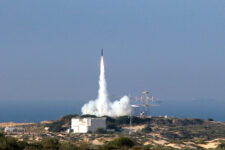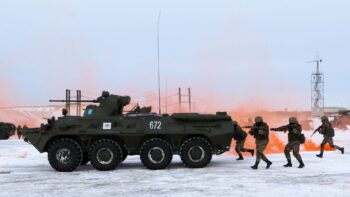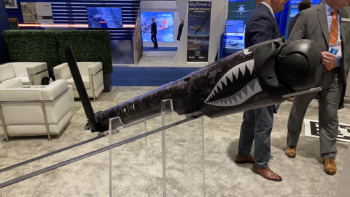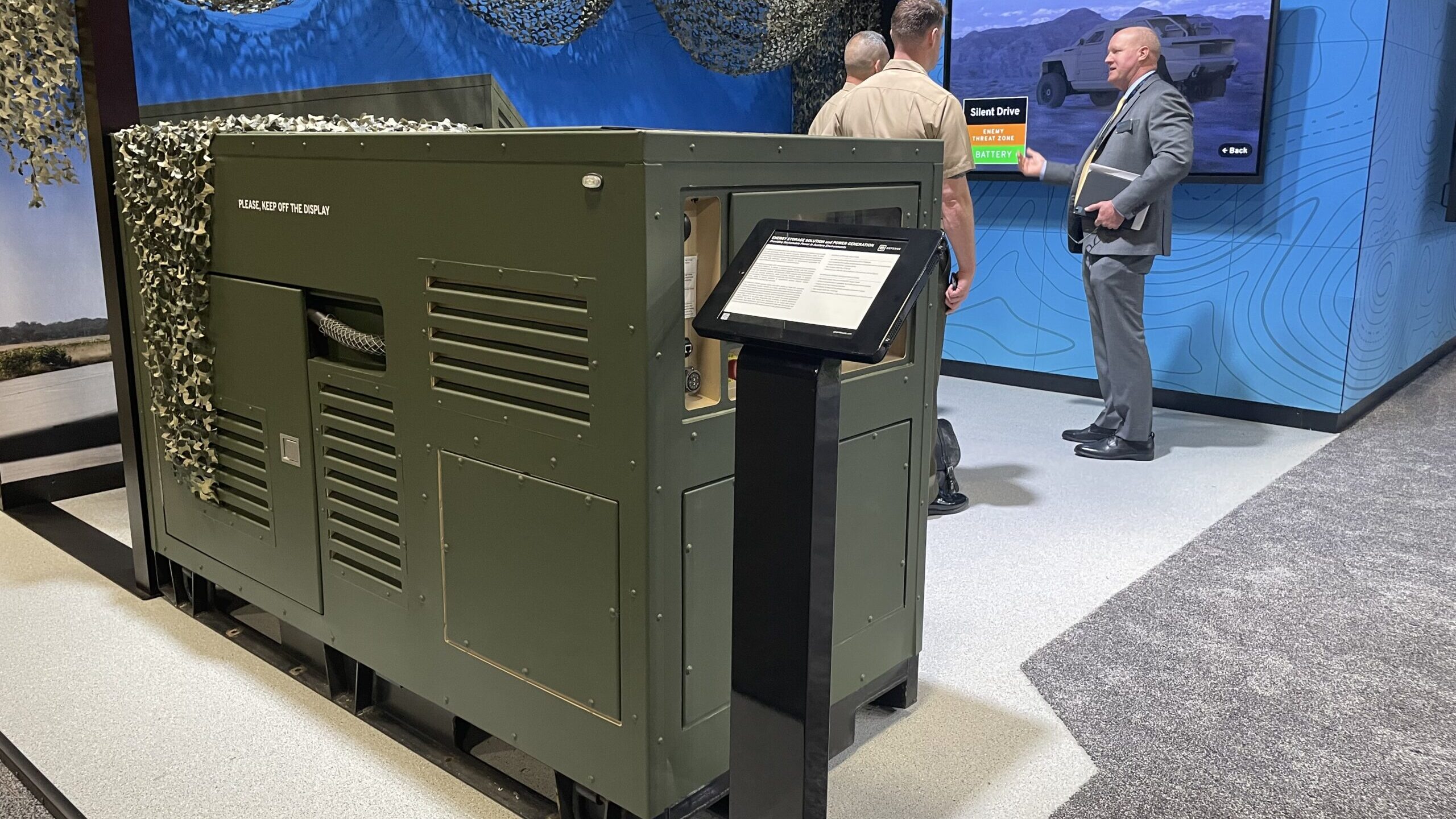
At Modern Day Marine 2023, GM Defense displayed its vision for its STEEP prototype. (Breaking Defense/ Ashley Roque)
MODERN DAY MARINE 2023 — With the Marine Corps eyeing ways to more effectively generate power in remote locations, the Defense Innovation Unit (DIU) has awarded Cummins Power Generation and GM Defense with contracts to develop alternative energy storage prototypes.
Dubbed the Stable Tactical Expeditionary Electric Power program, or STEEP, the duo are tasked with designing a modular, vehicle-transportable system to provide various forms of energy storage and management for tactical and mobile microgrids, according to the Department of Defense organization.
“To effectively function in [austere and remote] locations, defense units will be required to operate over longer distances, while using and overseeing a growing range of energy-intensive platforms that will have increasingly greater demand for reliable, efficient power,” DIU wrote in an announcement posted Tuesday. “Without energy storage, operators often run redundant ‘backup’ systems, which leads to increases in fuel consumption, operations, and maintenance.”
The system, which was requested by Marine Corps Systems Command (MCSC) through DIU, “will have embedded control functionality that provides improved grid stability and reliability while also providing the ability to conduct silent watch operations, and peak load shaving,” DIU wrote.
GM Defense is showcasing a model of a potential design at this year’s Modern Day Marine symposium in Washington, DC, and company representatives spoke with Breaking Defense about its plans to develop a STEEP prototype that works alongside hydrogen-powered generators.
“It’s [primarily] for powering command posts or anywhere there’s a generator right now you can use it,” said Doug Oi, with GM Defense’s advanced product development.
Paul Beaker, the company’s chief engineer and director for advanced product development, noted that GM Defense is still in the design phase and is focusing on making sure it “fully understands” what requirements the USMC have in mind.
For now, though, the company envisions that its STEEP design will weigh less than 3,960 pounds, and be housed inside a container that is nearly seven feet long, three feet wide and over four feet tall. That design will produce 60 kWh usable energy leveraging the company’s Ultium platform, its electric vehicle propulsion architecture, the reps said. If development stays on track, the company intends to deliver seven of its STEEP prototypes to DIU in mid 2025 for evaluations, said Doug Oi, with GM Defense’s advanced product development.
The DIU noted that it plans to conduct full scale operational testing within two years. Based on that feedback, that STEEP design can be modified and/or the Marine Corps could decide to greenlight the program and move into production with either GM Defense’s design or the Cummins’s.
Cummins does not appear to have commented about the award publicly. A request for comment was not immediately returned.

